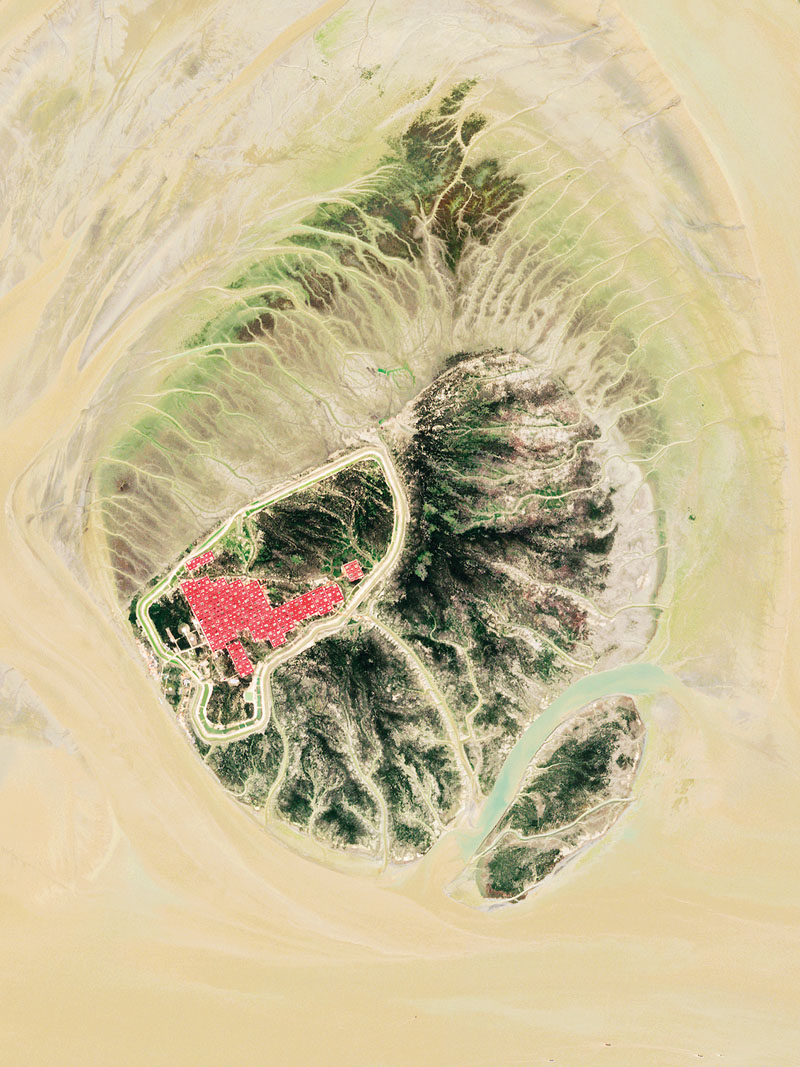DHAKA, Bangladesh: The UN’s top court has ordered Myanmar to do all it can to prevent genocide against the country’s ethnic Muslim Rohingya minority.
A 17-judge panel at the Hague-based International Court of Justice (ICJ) said its order for so-called provisional measures meant to protect the Rohingya was binding “and creates international legal obligations” on Myanmar.
Yasmin Ullah, a Rohingya activist who was in the court on Jan. 23, described the ruling, which warns that genocidal actions could recur, as historic.
“Today, having the judges unanimously agree on the protection of Rohingya means so much to us because we’re now allowed to exist and it’s legally binding,” she said, adding that she did not think Myanmar would comply with the order.
Indeed, Myanmar’s Ministry of Foreign Affairs said the order presented a “distorted picture of the situation.”
Yasmin Ullah was born in Myanmar’s northern Rakhine state, and her family fled the country after the massacres of Rohingya Muslims in the 1990s.
After arriving in Thailand in 1995, the Ullahs lived there without any legal protection and basic rights for 16 years.
FASTFACTS
The Rohingya are Myanmar’s largest Muslim community.
The majority live in northern Rakhine state.
Government denies them citizenship, claiming they are illegal immigrants.
Persecuted Rohingya have fled to Bangladesh in waves.
Latest crisis erupted in 2017 after Rohingya militants attacked police posts.
She is now based in Canada where she is pursuing a degree in political science. In addition, she serves as the President of the Rohingya Human Rights Network (RHRN) and works as a coordinator at the Free Rohingya Coalition.
In an email interview with Arab News, she described the current human-rights situation in Myanmar as “strange.”
Human rights violations are still rampant, and disproportionately instigated by the members of government authority, military, and law enforcement against innocent civilians, she said.
“This is especially true in the area populated by ethnic nationalities, including Rakhine state from where I come.”
On the other hand, she pointed out, Myanmar was still perceived as the country of Nobel Peace Prize winner and a human rights icon Aung San Suu Kyi, the current civilian ruler (state counsellor).
The ICJ ruling came despite appeals last month by her for the judges to drop the case, and denials by Aung San Suu Kyi that the armed forces, which once held her under house arrest for 15 years, had committed genocide.
“Internationally, Myanmar was very promising to investors as a country transforming into a liberal democracy primed for the free market, and thus, human rights violations that have been taking place are often dismissed in favor of the big picture,” Yasmin Ullah said.
“Structurally, the country is made of a small percentage that controls most of the country’s resources, a very small sliver of the middle class and the vast majority living under the poverty line as wage workers, farmers and other low-paying positions.

Yasmin Ullah, a Rohingya Muslim girl, currently based in Canada, has been travelling around the world to tell the stories of the ongoing atrocities on her community in Myanmar. (Supplied)
“The years of propaganda by the military regime has carved Myanmar into an intolerant society and emphasized the idea of one acceptable monolithic identity.
“Hence, any departure from the Buddhist identity or what is accepted as a good Burmese is almost frowned upon.”
According to Yasmin Ullah: “Expressing any dissenting views of the government or the military’s policies will at least get those who speak up monitored, profiled, and at times, kidnapped and disappeared.”
She said many minority groups within the country decided long ago to take up arms and fight back.
The majority of those living in ethnic states are innocent civilians, but they are often the ones to bear the brunt of the battles between the military and the ethnic armed groups, Yasmin Ullah said.
“Women frequently suffer the worst of it all due to the military strategic plans to incite fear of the ethnic communities by way of mass rape as well as sexual and gender-based violence,” she said.
“Once the community is fearful enough, the people often leave their homes and lands, and comply with the even worse living conditions enforced by the military, such as internment camps that can be found in various areas in Shan, Rakhine and other states.”
A common denominator in all of this is that Myanmar’s authorities have enjoyed impunity for the last several decades.
Thousands of Rohingya perished and more than 700,000 fled to Bangladesh during an army crackdown in 2017.
Since the so-called clearance operation, the military has not stopped dismissing the fact that it has murdered, tortured and raped large members of Rohingya, she said.
“To this day, the remaining Rohingya in Rakhine are restricted in their freedom of movement, from speaking up against the military as well as Myanmar’s government in general, and from accessing the very basics needed to sustain themselves.”
Although there is a mounting pressure internationally, the country remains defiant over any investigation or international probe triggered by the various UN conventions.
In July 2019, the Australian Strategic Policy Institute and the International Cyber Policy Centre released a report outlining the reality on the ground since 2017.
“The satellite images show that there has been no effort by the Myanmar government in reconstructing any houses razed to the ground in over 300 Rohingya villages,” Yasmin Ullah said.
“In addition, there are six military bases expanded or newly built on our previous homes, 45 internment camps newly built for any returnees or displaced people, and more homes and settlements destroyed since 2018.
“My family still live in Rakhine state. They can attest to the harsh reality of living conditions imposed by the oppressive and unjustified laws against Rohingya.
“Military raids and demolition of Rohingya villages in many areas of Rakhine continues even under the international community’s close watch.”
Moreover, as the fight between the military and the largest insurgent group in Rakhine state, the Arakan Army, intensifies, Rohingya and other ethnic groups are caught in the crossfire.

A Rohingya refugee camp on Bhasan Char island. (Gallo Images)
“More of our people become displaced — and left with no means of sustaining themselves and their families,” Yasmin Ullah said.
“Hundreds of Rohingya, including children, have been incarcerated for traveling without a travel permit which is a rule that is disproportionately imposed upon Rohingya and it is directly tied to the stripping of our legal status as Myanmar citizen back in 1982.
“Rohingya in Myanmar are still subjected to no less persecution, arbitrary arrests and restrictive living conditions and frequent human rights violations than before August 2017.”
Asked about the idea of engagement with the government to lift the restrictions on access to Rakhine, Yasmin Ullah said negotiation only works when there is a balance in the power dynamic.
“In our case, Rohingya are branded as illegal aliens; therefore, our voices or our complaints don’t really matter. That’s the justification that the military has successfully sold the Myanmar public,” she said.
“More of us are now living in exile and only 600,000 of us are left in the very volatile situation in Rakhine state. The military managed to drive out over 740,000 of us in the last two years, and there is a clear message in all of this.”
She said even as pressure builds at the international level on the government, it continues to oppress Rohingya and other ethnic minorities in pursuit of economic development that only benefits the military and its cronies.
The measures imposed by the ICJ are binding and not subject to appeal. Although the court has no way of enforcing them, Ullah said there is anxiety in Myanmar over the case, as reflected in the arrangements for a delegation to meet Rohingya refugees in Bangladesh in December 2019.
“The state counsellor (Aung San Suu Kyi) mentioned in front of the judges that Myanmar is trying to pursue justice within its own judicial system,” she said.
“Although she whitewashed and dismissed most of the allegations of genocide, she acknowledged there were wrongdoings.
“This will, and already has, created room for activists and good Samaritans to put the emphasis on accountability and the need to scrutinize absolute power.”
As recently as after the hearing in the Hague, youth activists in Myanmar from groups Youth for a New Society and Doa-A-Yae, organized a solidarity campaign standing up against the Rohingya genocide, according to Yasmin Ullah.
“These brave young people realize that Myanmar will not change unless they keep resisting — and demand a free and fair society.”























